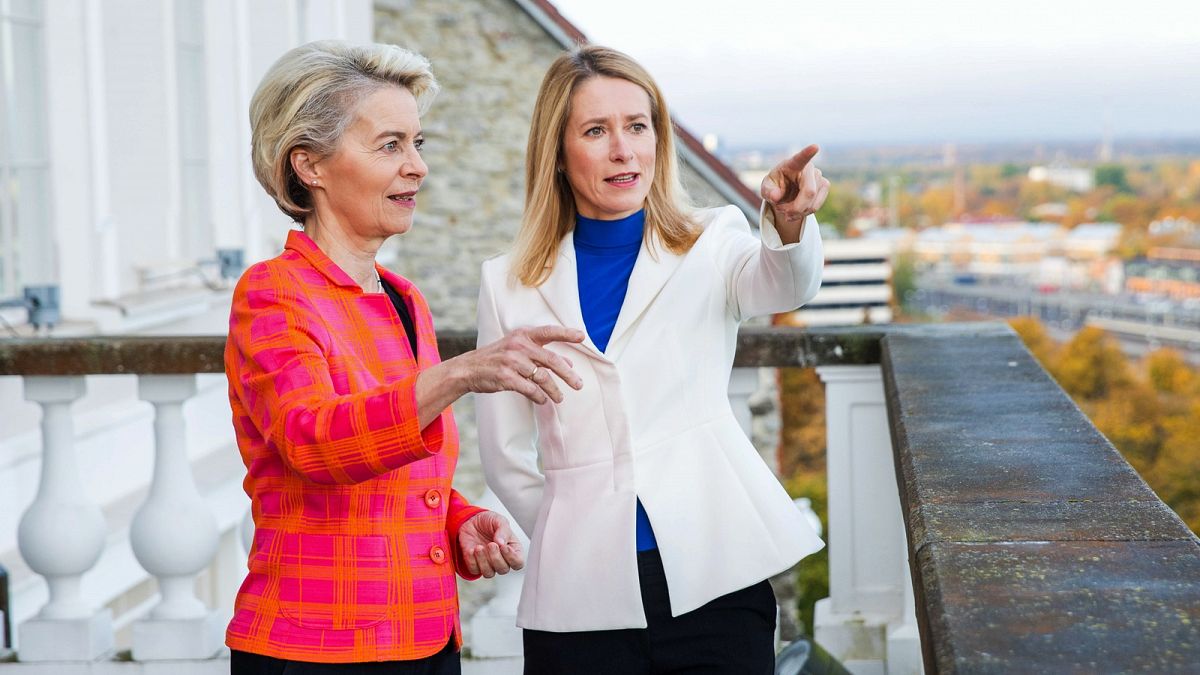Jobs
Negotiators seal EU top jobs deal for von der Leyen, Costa and Kallas

Despite the reported deal, the decision will not become official until the 27 leaders gather in a summit later this week.
The six European Union leaders acting as negotiators of the main centrist parties have sealed a preliminary deal to allocate the bloc’s top jobs following June’s European elections.
The news was first reported by DPA, the German news agency, and was later confirmed to Euronews by diplomatic sources.
The deal follows the previously reported trio of candidates: Ursula von der Leyen for president of the European Commission, António Costa for president of the European Council and Kaja Kallas for High Representative for Foreign Affairs and Security Policy.
The package had already been put together last week during an informal gathering of EU leaders but was finalised in a call between Poland’s Donald Tusk, Greece’s Kyriakos Mitsotakis, Germany’s Olaf Scholz, Spain’s Pedro Sánchez, France’s Emmanuel Macron and the Netherlands’ Mark Rutte.
Tusk and Mitsotakis represented the centre-right European People’s Party (EPP), Scholz and Sánchez the Socialists & Democrats (S&D), and Macron and Rutte the liberal family of Renew Europe. The three parties are expected to work together and build a durable coalition that can sustain von der Leyen’s second term.
“The negotiators of the three political groups have reached a consensus on a common position in accordance with the Treaties,” a diplomat said, confirming the names.
The selection of top jobs has to be ratified by all 27 leaders in a crucial summit later this week, during which they will also endorse the Strategic Agenda for the next five years.
Italy’s Giorgia Meloni, Czechia’s Peter Fiala and Hungary’s Viktor Orbán, all of whom are outside the centrist coalition, have previously complained about the way the top jobs were being negotiated by the three families.
“The deal that the EPP made with the leftists and the liberals runs against everything that the EU was based on. Instead of inclusion, it sows the seeds of division,” Orbán said on Tuesday, doubling down on his grievances.
The decision is made by a qualified majority, meaning national vetoes do not apply. Still, Meloni’s weight in the European Council could be a factor in the face-to-face negotiations on Thursday and drag down the final announcement.
If eventually appointed, von der Leyen and Kallas will still have to undergo a hearing at the European Parliament, while Costa, a former prime minister of Portugal, will be automatically elected by his former peers.
In an informal meeting last week, the EPP took the Socialists by surprise when it demanded to have the presidency of the European Council after Costa completes a term of two years and a half. Euronews understands this demand has now been taken off the table, paving the way for the Portuguese socialist to run the institution for five years.



![Evolution of Chainmail Metallic Goddess Dresses: Over 50 Years of Runway and Red Carpet Glamour [PHOTOS] Evolution of Chainmail Metallic Goddess Dresses: Over 50 Years of Runway and Red Carpet Glamour [PHOTOS]](https://wwd.com/wp-content/uploads/2025/01/chainmail-dresses-through-the-years.jpg?w=1000&h=563&crop=1)





